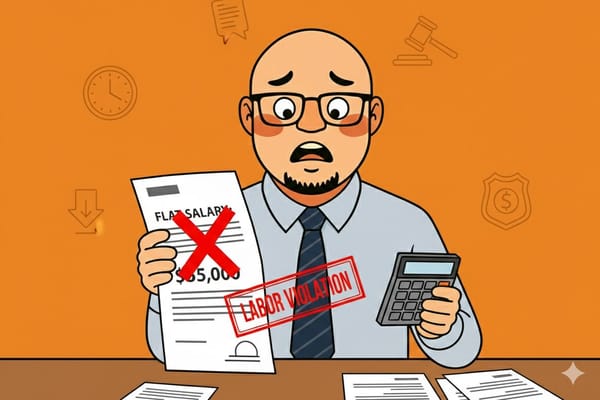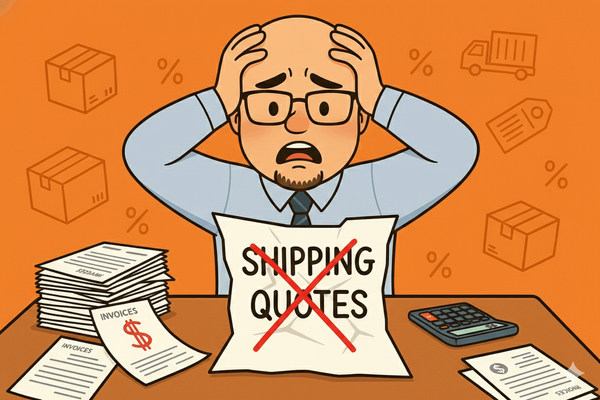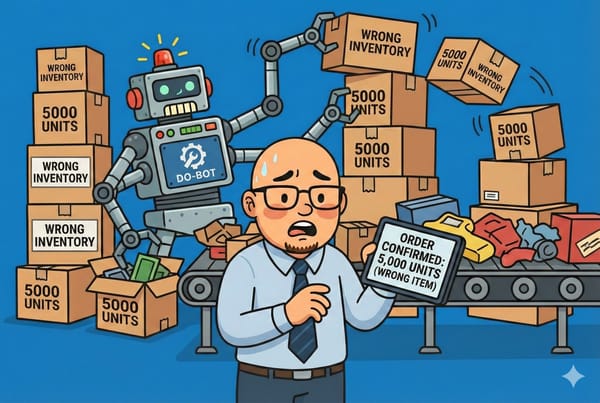The Legal Hat: LLCs, Liability, and Losing Sleep – What You Actually Need to Know
Let’s dive into the legal basics every small business owner should know—without falling asleep or going bankrupt hiring a law firm that bills in six-minute increments.

If you’ve ever Googled “Do I need an LLC?” at 2 a.m. while staring into the void (or a half-finished logo mockup), this post is for you.
Legal stuff isn’t fun. There’s no dopamine hit like getting a logo just right or launching your Shopify store. But whether you're selling handmade dog bowties, running a consulting empire from your couch, or bootstrapping a software startup on $17 and a dream, putting on the Legal Hat early can save your future self a lot of heartburn—and possibly a court date.
Let’s dive into the legal basics every small business owner should know—without falling asleep or going bankrupt hiring a law firm that bills in six-minute increments.
What Exactly Is the “Legal Hat”?
The Legal Hat is the invisible fedora you wear every time you do something that could come back to haunt you: signing contracts, working with clients, hiring anyone, or accepting payments. It’s not fun or glamorous, and you won’t get Instagram likes for it. But it's essential.
And guess what? You're already wearing it—whether or not you're doing it well is another matter.
LLC vs. “Just Me, Doing My Thing”
So let’s start with the question that haunts every side-hustler and solo entrepreneur:
“Do I really need an LLC?”
Short answer: Probably.
Longer answer: Let’s unpack it.
Sole Proprietorship: AKA “You Are the Business”
If you’re operating without registering anything, congrats—you’re a sole proprietor. It’s automatic, requires zero paperwork, and the IRS already sees you as a business the moment you accept money in exchange for anything.
Sounds simple? It is.
Sounds risky? Also yes.
As a sole proprietor:
- You and your business are legally the same entity
- If your business gets sued, your personal assets are on the line
- You can use your Social Security Number for taxes (but shouldn’t)
- You might get away with this for a while... until something goes wrong
Basically, sole proprietorship is like going into a fencing match wearing a paper towel as armor.
LLC: Your Liability Shield (Mostly)
An LLC, or Limited Liability Company, is the legal equivalent of a good night’s sleep and a fireproof vest. It separates you from your business in the eyes of the law.
That means:
- ✅ Your personal assets (home, savings, PS5) are protected if the business gets sued
- ✅ It looks more legit to clients, banks, and investors
- ✅ You get more tax options (like electing to be taxed as an S-Corp later)
- ✅ You can open a business bank account that doesn’t have your dog’s name on it
It’s not bulletproof, but it’s way better than nothing.
How to Actually Form an LLC Without Losing Your Mind
Forming an LLC isn’t hard, but it feels like it is because legal websites are intentionally written like 18th-century English.
Here’s what it actually takes:
- Choose a state – Usually, just use the one you live in. Delaware is popular for corporations, not small businesses.
- Pick a name – Make sure it’s not taken. Add “LLC” at the end if required.
- File Articles of Organization – This is the official paperwork. You can usually do it online through your state’s Secretary of State site.
- Designate a Registered Agent – This is a real person or service who can receive legal documents. You can be your own, but don't list your home address if you're privacy-paranoid.
- Pay the fee – Varies by state. Could be $50, could be $800 (looking at you, California).
- Create an Operating Agreement – Not always required, but very useful. Even if it’s just you, it's good to define roles and responsibilities (and it helps with banks and courts).
You can pay a service like LegalZoom or ZenBusiness to do it for you, or just do it yourself in an hour and spend the money on espresso.
"But What If I Do Something Dumb and Get Sued?"
First, take a breath. Most small business lawsuits don’t come out of nowhere. They usually follow:
- Breached contracts
- Misleading advertising
- Faulty products
- Terrible client relationships
- Hiring someone’s cousin to build your website for “exposure”
Having an LLC helps protect your personal assets, but it won’t save you from lawsuits completely. If you:
- Mix personal and business money
- Forget to sign contracts
- Lie to customers
- Commit fraud
...you can “pierce the corporate veil,” which sounds fancy but really just means “you lose the protections you thought you had.”
Bottom line: The LLC is a seatbelt, not a tank.
Contracts: Yes, You Need Them (Even With Friends)
Verbal agreements are fine for splitting a pizza. Not for running a business.
Every working relationship needs something in writing:
- Clients
- Partners
- Freelancers
- Anyone doing work with or for you
Even a simple contract that defines scope, timeline, payment, and responsibilities can save you from confusion and finger-pointing later.
Pro tip: Always include a clause about what happens if things go sideways. You’ll be glad it’s there when someone ghosts you with half the job done.
Taxes and the Legal Hat (Don’t Panic, But Be Smart)
Legal Hat overlaps with the Tax Hat more than anyone would like. A few things to know:
- Get an EIN – It’s free from the IRS. Think of it like a Social Security number for your business. Use it to open a bank account or hire contractors.
- Separate your business finances – Open a business checking account and use it only for business. Seriously. Don’t buy your cat’s toys with your business debit card.
- Track everything – Use accounting software or a spreadsheet. You’ll thank yourself come tax season.
- Know your quarterly taxes – If you’re making money, you might owe estimated taxes every quarter. Yes, even if it’s just a little.
Hire an accountant or use a good bookkeeping service as soon as you can afford to. Trying to DIY everything forever is a great way to hate April.
The Legal Stuff You’re Probably Ignoring (Stop That)
Let’s play a quick game of “Are You Even Slightly Protected?” Answer yes or no to the following:
✅ Do you have a privacy policy on your website?
✅ Terms of service for your products/services?
✅ Written agreements with your contractors or partners?
✅ Business insurance?
✅ Registered your business name or trademark?
If you answered “no” to more than two, congrats—you’re building a house without walls. Let’s fix that.
The Bare Minimum Checklist:
- ✅ Register your LLC
- ✅ Get an EIN
- ✅ Open a business bank account
- ✅ Use written contracts
- ✅ Keep business and personal finances separate
- ✅ Have basic legal policies on your website
- ✅ Consider liability insurance (especially for services/products)
- ✅ Hire professionals for the stuff you don’t understand
You don’t need to be a legal expert. You just need to act like your business is real—because it is.
Final Thoughts: Don’t Let the Legal Hat Scare You
Look, you didn’t start a business to write contracts, file paperwork, or calculate quarterly taxes. You started it to build something, help people, and maybe make enough money to stop Googling “how to invoice your cousin.”
But ignoring the Legal Hat won’t make it go away. It just makes things messier later.
The good news? Once it’s set up, it’s mostly hands-off. Think of it like insurance, but for your sanity. You can get back to the fun stuff—like growing your business, messing up in new ways, and reading blog posts like this one.
Now take off the Legal Hat for the day. You’ve earned it.




